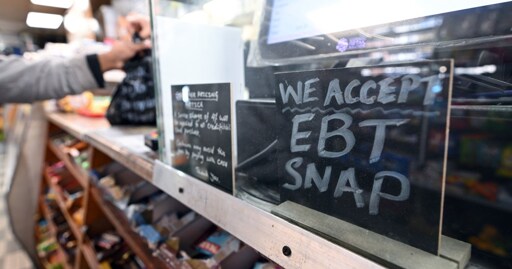Normally, the 42 million Americans who rely on food stamps (formally known as the Supplemental Nutrition Assistance Program, or SNAP) begin to receive money they can use to purchase certain groceries on the first day of each month.
But today, amid the 32-day-and-counting government shutdown, those funds weren’t there for the vast majority of recipients. (Governors in Virginia and Vermont pledged to use state funds to keep the program going for their respective residents, though both said brief delays were probable as they worked out technological challenges.)
This is the first time in the program’s 61-year history that this has happened. Not because there have never been long government shutdowns, but because past administrations (including the first Trump administration) used contingency funds to keep SNAP operating while Congress worked out its budget disputes.
After the US Department of Agriculture (USDA) released a memo indicating it would not use the contingency funds during this shutdown, more than 20 states sued, arguing that withholding already appropriated funds was illegal. A handful of cities and several nonprofit organizations filed a similar suit Thursday.
On Friday, two judges indicated support for their arguments.
In Rhode Island, US District Judge John McConnell issued an oral decision, affirming the plaintiffs’ argument that the Trump Administration “needlessly plunged SNAP into crisis,” and therefore has to use the reserve funds.
“There is no doubt that the six billion dollars in contingency funds are appropriated funds that are without a doubt necessary to carry out the program’s operation,” McConnell said, according to NBC News.
In a separate federal ruling Friday, US District Judge Indira Talwani wrote that the 20-plus states “are likely to succeed on their claim that Defendants’ suspension of SNAP benefits is unlawful.”
These rulings will not protect SNAP benefits forever. While $9 billion is needed to cover November benefits alone, there is only estimated to be between $5 and $6 billion dollars in reserve funds. President Donald Trump has since asked the courts for guidance on how to proceed with limited funds.
“Even if we get immediate guidance, [funding] will unfortunately be delayed while States get the money out,” President Donald Trump wrote on social media Friday. “If we are given the appropriate legal direction by the Court, it will BE MY HONOR to provide the funding.”
In the meantime, food banks—like the one I visited in the greater Washington, DC, area earlier this week—have seen demand skyrocket as the 1 in 8 Americans who normally count on SNAP continue to face uncertainty about how much money will be deposited onto their debit-like benefits cards, and when.
For this, the administration places full blame on Democrats, stating on the homepage of the USDA’s website that “Senate Democrats have now voted 13 times to not fund the food stamp program…Bottom line, the well has run dry.”
But the latter part is not quite true. Contingency money for SNAP exists. Trump chose not to use it—at least, not until the courts made him.
From Mother Jones via this RSS feed


